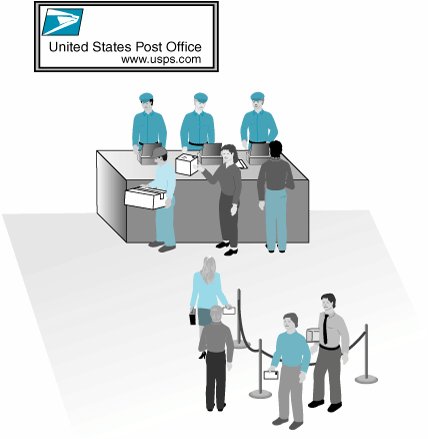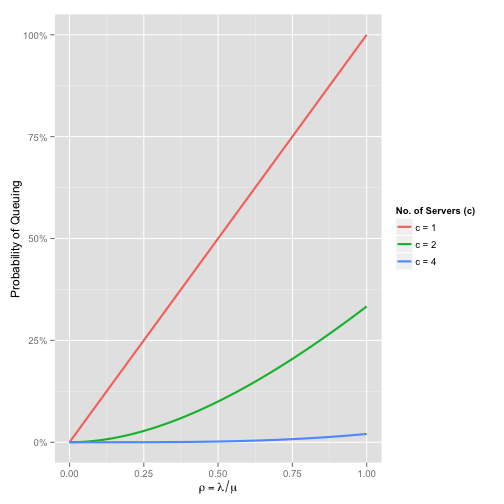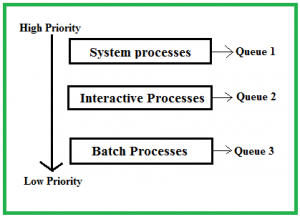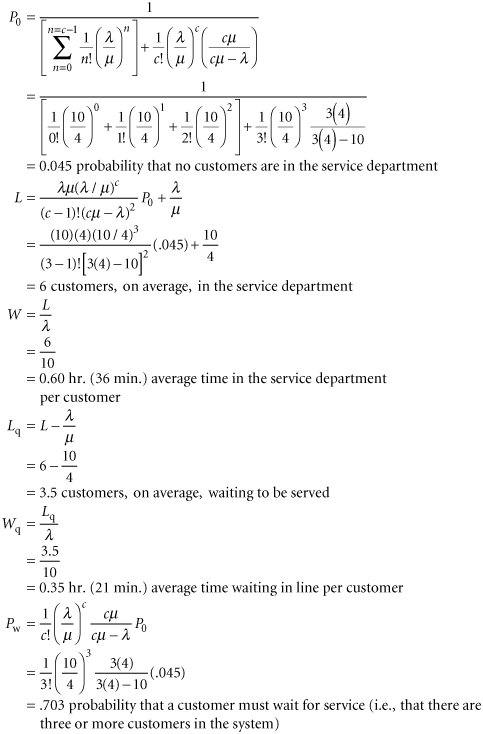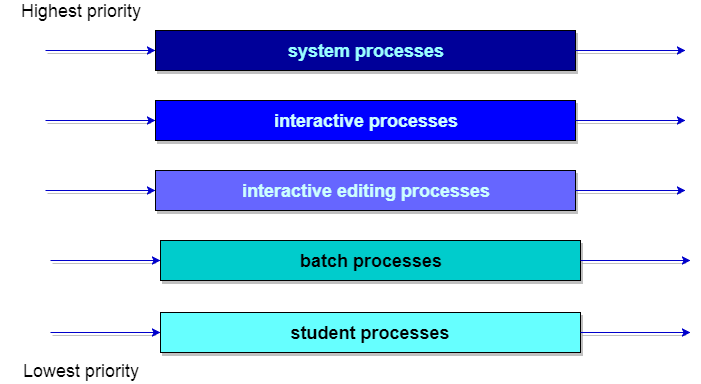Muliple Queues And N Servers رسمة
Examples of this type of waiting line include an airline ticket and check in counter where passengers line up in a single line waiting for one of several.
Muliple queues and n servers رسمة. Utilization difference between a multiple server single queue and a multiple server multiple queue system. The multiple server model or usually known as m m s server discipline occurs in the setting of a waiting line in which there is one or more servers the customers are supposed to arrive at a random rate that is specified as a poisson. The difference which should be obvious is that rather than having just one server we. Single queue with arrival rate 2 lambda and 2 servers with serving rate mu a systems with 2 queues each with arrival rate of lambda and 1 server with rate mu intuitively for me it looks like these systems should be the same.
Slightly more complex than the single server queuing system is the single waiting line being serviced by more than one server i e multiple servers. The customers will form a single queue and the the first waiting customer in queue will enter service when any of the servers becomes idle. Simulation of the variance of a typical waiting time w q in a queue. Connecting two queue server pairs in parallel in which entities are routed to one or to the other queue server pair can represent alternative operations.
The color set of the place is a list color set there is a single token on the place in the initial marking of the net and there is be a single token on the place in every reachable marking. Like the queue i described in an earlier post the queue has inter arrival times exponentially distributed with rate and service rate exponentially distributed with rate. The place queue models the queue of jobs. Parallel queue server pairs as alternatives.
More about the multiple server model for you to have a better understanding of what this calculator will provide you. Multiple server model calculator. Queuing theory with poisson distribution. Trading off customers waiting time vs.
The system consists of two modules that are modeled by the two substitution transitions arrivals and server these two modules are described in detail below. Wait time in queue for 2 server system exponential process 1. Manage fairly by opening new q s for the longest waiting customers. In this post i want to address the simplest model for multiple servers.
Server or servers choose a customer for service according to some static e g preemptive re sume or dynamic e g polling priority rule. While not all queueing models with multiple waiting lines are naturally classified as belonging to class i passive servers. Customers choose a queue or class ii active servers. Servers interruption thresholds ensure that help obtained when truly needed yet not too frequently.
But i m trying to compare them using the performance measures and i get strange results. For example you can model how vehicles wait in line for one of several tollbooths at a toll plaza.










